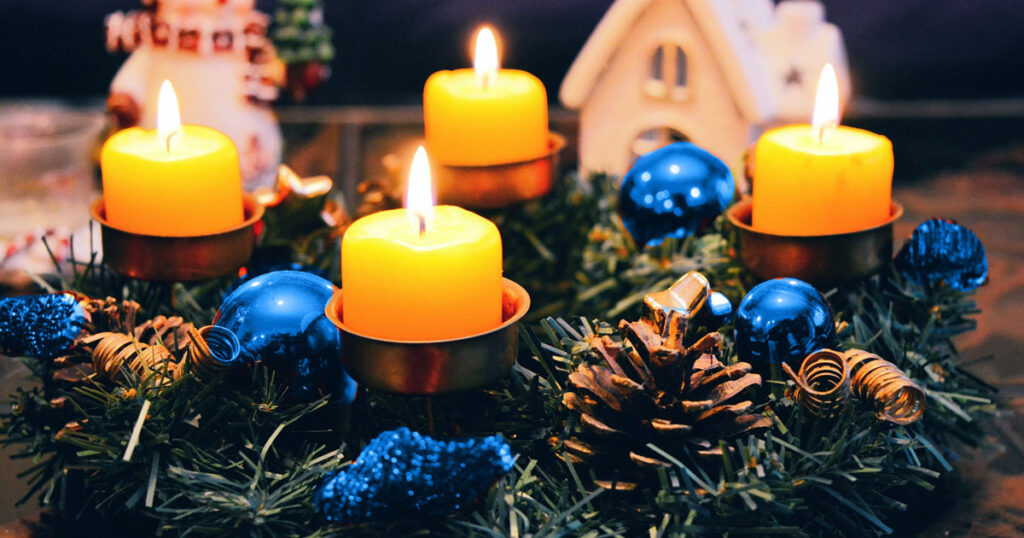Blue Christmas for Inishowen’s Ukrainians

Ukrainians across Inishowen are preparing to spend their first Christmas away from home, many of them still separated from loved-ones who remain in peril 2,000 miles away.
Close to two per cent of Inishowen’s population are Ukrainian refugees.
Just over 700 refugees from the war-torn country now in temporary residence across the peninsula.
A further Ukrainian 30 men, women and children arrived in Ballyliffin last week.
The latest Central Statistics Office data – up to and including November 6, 2022 – shows that the North Inishowen Electoral Area continues to house the majority of refugees locally, with 536 in North Inishowen compared to 146 in South Inishowen.
In total around 4,500 Ukrainians are now living in County Donegal, with the biggest number [1,407] being housed in the Donegal Electoral Area, which includes Bundoran and Ballyshannon.
The Department of Education has revealed that more than 1,100 Ukrainian kids are enrolled at schools in County Donegal, including 742 in primary schools and 387 at secondary level.
It is understood that around 200 children from Ukraine are attending schools in Inishowen.
Meanwhile our neighbours from Eastern Europe continue to make a positive contribution to life here, including a generous donation to local mica families.
At a recent mica information night, members of the Ukrainian community donated the proceeds from running a charity shop in Carn to the Mica Action Group.
Alina Edel, Ukrainian Support Worker with Inishowen Development Partnership [IDP], spoke about how the Ukrainian population in Inishowen is very aware of the situation that many families are facing in relation to having defective blocks.
She revealed how one Ukrainian family, who had joined her at the mica information night, had their house blown up by Russian forces and had to flee their home.
She said this has been the case for many Ukrainians and they can relate to the mica families in how it feels having your house crumbling on you.
Despite the empathy they feel with the mica families, Alina said they were reluctant to present the cheque to the mica group in public as they realise it is a very difficult situation for Irish families.
However she said they were encouraged to do so at the mica information night and they are glad they did.
“We had just asked for bank details but our Irish friends insisted we come and we are very happy we did,” explained Alina.
“The reaction was very nice and warm from everyone. These people have their own problems – they are losing their homes too because of mica.”
The Ukrainian community raised the €700 for the mica families after they ran a charity shop in Carn in September.
“The local community offered us the chance to run a charity shop in Carndonagh and we were shocked when people started to bring us their donations. It was very heart-warming,” said Alina.
“For many of the new arrivals at this time they left Ukraine in warm weather and with very little belongings – one person had fled occupied territories without anything at all – so we were happy to be able to get warm clothes for them.”
“Our volunteers worked hard in the charity shop six days per week – it also helped to manage their stress and anxiety thinking about conditions at home – but we also made some additional profit.”
Alina said their community voted overwhelmingly to donate the profit back into the local community, with families affected by mica being the number one priority.
“We wanted to give something back to the community – the fact we received profit at all was down to the local people so we felt this was the smallest thing we could do,” added Alina.
“It’s just about human kindness and support. In tough times we should stay strong and help each other.”
Denise McCool, Community Development Team Lead with IDP, said the donation on the night was a special moment and was greatly appreciated by the MAG group, as well as the families watching on that evening.
“It was a poignant moment – here you have people fleeing a warzone and dealing with all the stress that they have to deal with and yet they recognised what’s going on in our community and felt they wanted to offer support and to donate back to our families affected by mica and defective concrete blocks.”
“I think it was a lovely gesture of solidarity.”
